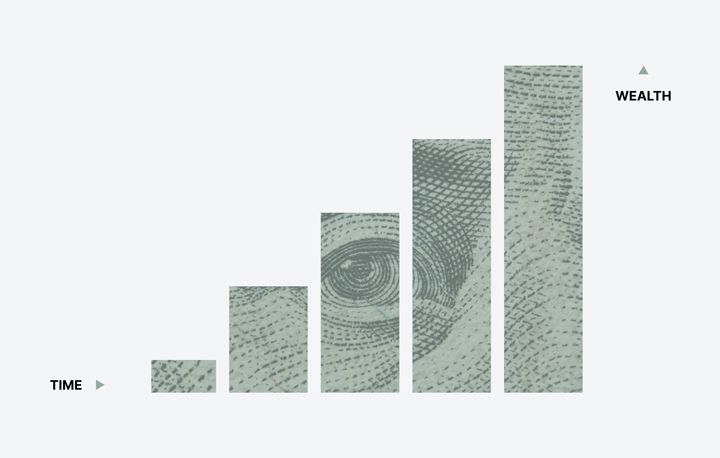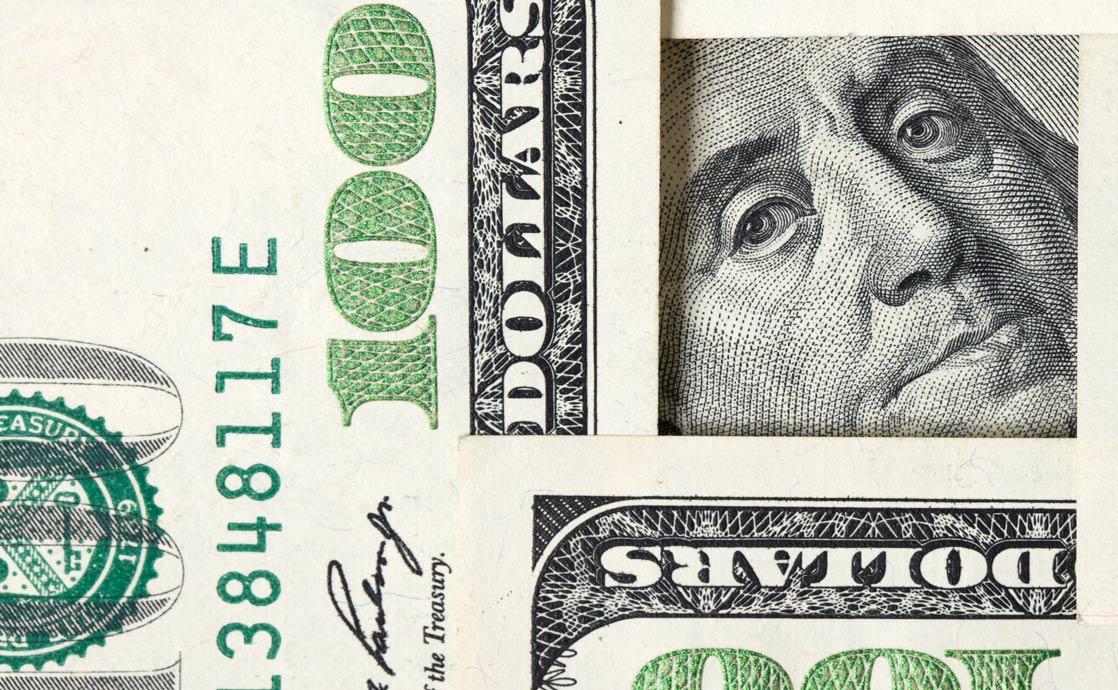The views expressed in our content reflect individual perspectives and do not represent the authoritative views of the Baha'i Faith.
One of the world’s greatest driving forces is the desire for wealth. So many wars have been fought for money, and millions of lives have been lost in the pursuit of it. Every aspect of modern life is under its spell, and yet we really cannot define it. Wealth and money mean different things to different people, and they serve different purposes.
Investopedia defines wealth as: “the value of all the assets of worth owned by a person, community, company or country. Wealth is determined by taking the total market value of all physical and intangible assets owned, then subtracting all debts. Essentially, wealth is the accumulation of resources. Specific people, organizations, and nations are said to be wealthy when they are able to accumulate many valuable resources or goods.”
In a simple language, it means all the worldly possessions a person has accumulated. In economic terms, wealth is explained in many ways — net worth for individuals and gross national product “GNP” for countries.

Before money was introduced, different societies had their exchange systems to create wealth and used wheat, rice, salt, cattle, and livestock. Silver and gold were used before currencies came to being, and since then, money has become the most common means of measuring wealth.
Considering all that, I’ve been thinking about how to define wealth from a Baha’i point of view. Baha’u’llah, the prophet and founder of the Baha’i Faith, wrote:
The essence of wealth is love for Me; whoso loveth Me is the possessor of all things, and he that loveth Me not is indeed of the poor and needy. This is that which the Finger of Glory and Splendour hath revealed.
This is the spiritual definition of true wealth. I understand it to mean that we acquire spiritual wealth when we work to develop virtues — virtues such as trustworthiness, truthfulness, assertiveness, compassion, honesty, honor, prayerfulness, and so on.
If we spend our lives developing virtues, we will have something to show for it when our time in this world of material existence comes to an end as these developed qualities will assist us in our next stage of existence.
Developing these virtues will naturally affect our financial and material lives. For example, as it relates to trustworthiness, Baha’u’llah said:
Trustworthiness is the greatest portal leading unto the tranquility and security of the people. In truth the stability of every affair hath depended and doth depend upon it. All the domains of power, of grandeur and of wealth are illumined by its light.
When it comes to a Baha’i perspective on wealth and money, several different ways of thinking about materialism come to mind. For one, Abdu’l-Baha, the son of Baha’u’llah and his designated successor, tells us that is nothing wrong with being rich or wanting to be wealthy.
Wealth is praiseworthy in the highest degree, if it is acquired by an individual’s own efforts and the grace of God, in commerce, agriculture, art and industry, and if it be expended for philanthropic purposes. Above all, if a judicious and resourceful individual should initiate measures which would universally enrich the masses of the people, there could be no undertaking greater than this, and it would rank in the sight of God as the supreme achievement, for such a benefactor would supply the needs and insure the comfort and well-being of a great multitude. Wealth is most commendable, provided the entire population is wealthy.
Baha’u’llah reminded us of the purpose of wealth and how it should be utilized in these words:
O CHILDREN OF DUST!
Tell the rich of the midnight sighing of the poor, lest heedlessness lead them into the path of destruction, and deprive them of the Tree of Wealth. To give and to be generous are attributes of Mine; well is it with him that adorneth himself with My virtues.
Based on my understanding of these quotations, I see wealth as an amazing tool for service to humanity, and I have not shied away from using my God-given abilities to strive to create wealth with this in mind.
However, in striving to earn money, I also work on detaching myself from it and continually call to mind my purpose of seeking spiritual wealth. Baha’u’llah cautioned us:
“O SON OF BEING!
Busy not thyself with this world, for with fire We test the gold, and with gold, We test Our servants.” –
The materialistic and capitalistic world that we live in tries to convince us that there is no higher goal in life than buying and consuming. In these confusing times where “the cancer of consumerism” has taken hold of humanity, the Baha’i teachings tell us to look at wealth and life differently. Rather than living solely to maximize our pleasure, we can try our best to love the Creator and seek God’s pleasure, and therefore love His creation — humanity. Instead of focusing only on personal satisfaction, we can turn away from ourselves and focus on a higher purpose. In this sense, we will be truly wealthy.
Abdu’l-Baha suggested how to prepare for the end of our lives. He said we should be as a passenger packed and ready for the spiritual journey by becoming more detached from the material world. At that end of life, wealth loses its glitter and its charm, and the only thing that will satisfy our soul would be the fact that we understood the true meaning of wealth and used our material wealth for the good of others.
















Comments
Sign in or create an account
Continue with Googleor